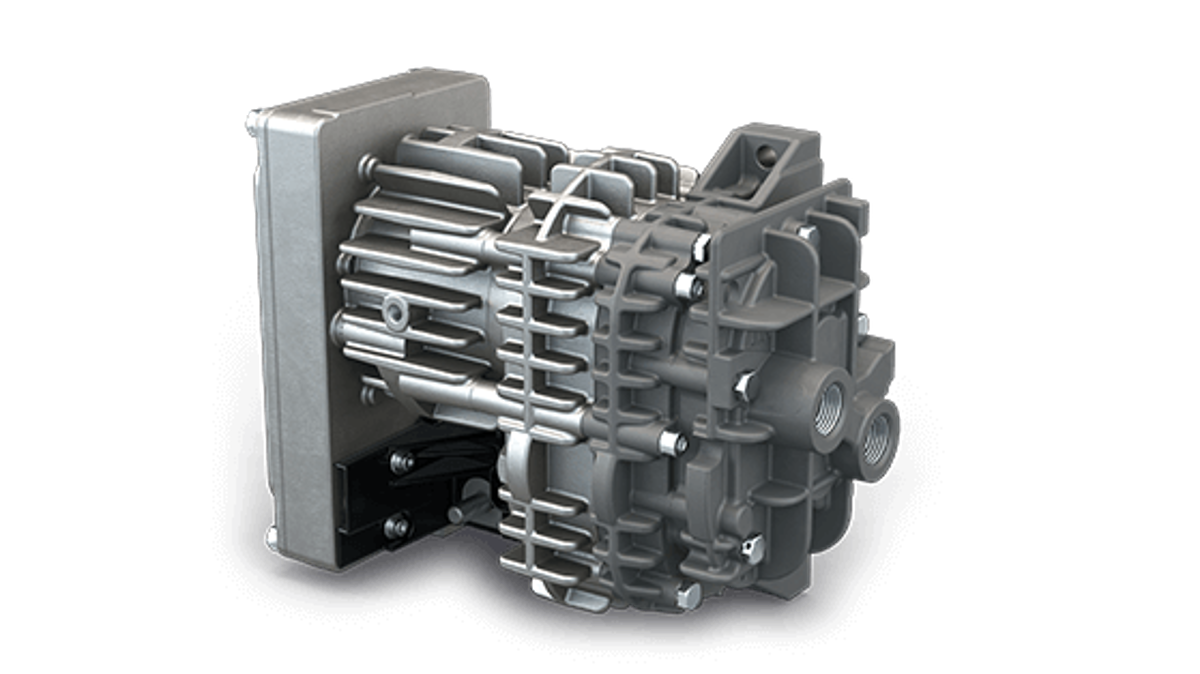The MINK MH 0018 A hydrogen recirculation blower ensures optimum recirculation of hydrogen (H2) within fuel cells with a performance of up to 45 kilowatts. This blower can also be used at a lower recirculation rate for fuel cells with up to 60 kilowatts. Two blowers can be operated in parallel for larger fuel cells.
Due to its small dimensions, the MINK hydrogen recirculation blower can be directly installed in the fuel cell module.
SGS-TÜV Saar GmbH tested the MINK MH 0018 A (Fig. 1) under extreme temperature conditions in a continuous operation test and subjected it to material corrosion tests. It successfully passed all of these tests, so TÜV certified the blower for conveying hydrogen. With this certification, TÜV confirms a low leak rate of maximum 10 standard cubic centimeters per hour.
Technical features
The new blower is equipped with an intelligent variable speed drive. This makes it possible to automatically adjust the volume flow to the actual fuel cell requirements, thus achieving the greatest possible efficiency. The MINK hydrogen recirculation blower can easily be operated at hydrogen temperatures between -30 to +85 degrees Celsius and ambient temperatures ranging from -30 to +95 degrees Celsius. It is thus suitable for mobile application in vehicles and for stationary fuel cell modules.Proven claw compression principle
The blower works according to the proven claw compression principle that Busch already introduced to the market in the 1990s, both in vacuum pumps and in compressors. MINK claw technology has since been used hundreds of thousands of times in many applications worldwide.The inner compression process is completely oil-free and contactless. Two claw-shaped rotors move in opposite directions in the housing. These two claw rotors do not come in contact with each other or the cylinder in which they rotate, so no lubricants or operating fluids are required in the compression chamber. The already pre-compressed hydrogen is drawn in due to the form of the claw rotors and further compressed by a maximum of 0.4 bar, then fed back to the hydrogen feed upstream from the anode.
The minimal clearance between the rotors and the housing optimizes the internal seal and ensures a volume flow that can be precisely defined thanks to the variable speed drive. A special coating of all parts coming in contact with hydrogen prevents corrosion from deionized water vapor, which is also conveyed.
A synchronizing gearbox maintains precise rotor timing. The special oil contained therein lubricates it for life. Oil changes and other maintenance work are not required.
